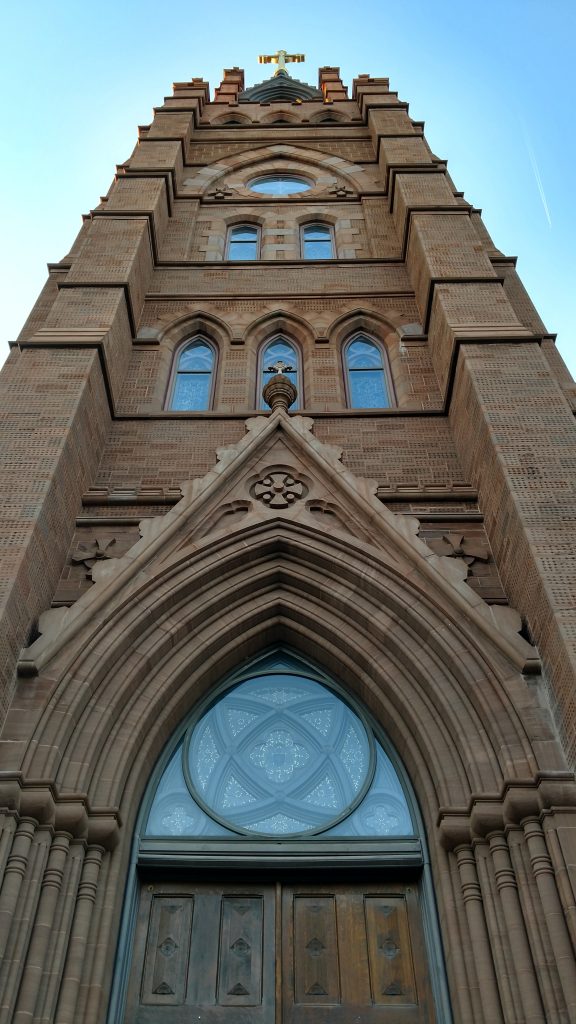
Zoning Ordinance Did Not Violate the Religious Land Use and Institutionalized Persons Act (RLUIPA)
Feb 27, 2020By: Henry Agee, Denise S. Bazano, Chad W. Herrington and Thomas D. Jex
A recent Ninth Circuit Court of Appeals decision, Calvary Chapel Bible Fellowship v. County of Riverside 948 F.3d 1172 (9th Cir. 2020), has affirmed the effectiveness of non-discriminatory zoning ordinances. This case reminds us that zoning ordinances that affect religious institutions should be drafted in a neutral, non-discriminatory manner to ensure that they conform to the equal terms provision of RLUIPA.
In this case, Calvary Chapel Bible Fellowship (“Calvary Chapel”) made a facial challenge to a Riverside County (“County”) zoning ordinance, alleging that the ordinance violated RLUIPA. Calvary Chapel claimed that the ordinance treated religious assemblies and institutions on less than equal terms with nonreligious assemblies and institutions because the zoning ordinance prevented Calvary Chapel from using its property for religious practices. The district court granted summary judgment for the County on the grounds that the ordinance allowed for both religious and secular assemblies to construct “special occasion facilities,” facilities that are used for a specified period of time in exchange for compensation (i.e. they are rented out). The Ninth Circuit affirmed.
In 1996, Calvary Chapel, a non-denominational Christian church, purchased a plot of land in the Citrus-Vineyard (“C/V”) Zone of the Temecula Wine Country of the County. In 1999, the County enacted more restrictive zoning for the C/V Zone in order to “encourage agricultural cultivation, vineyards, and wineries that would preserve the rural lifestyle, wine-making atmosphere and long term viability of the wine industry.” The new C/V Zone removed religious assemblies from the list of permissible uses but allowed for certain other permissible uses, such as 18-hole golf courses, country inns, and special-use facilities to be built upon approval of a plot plan. Calvary Chapel continued to operate as a legal non-conforming use after the 1999 zoning ordinance amendments.
Unaware of these changes, Calvary Chapel purchased an additional plot of land in the C/V Zone in 2009, hoping to construct a larger sanctuary and a special use facility for weddings, among other improvements. Calvary Chapel then discovered the C/V Zone designation and asked the County to amend it to permit the construction of a sanctuary. Although the County tried various ways to accommodate Calvary Chapel, a citizen group challenged the County’s efforts to rezone Calvary Chapel’s property. The County also began developing the Wine Country Community Plan (“WCCP”), which encompassed several zones in the “Wine Country” Zones of the County which included the C/V Zone.
Calvary Chapel made various requests to the County to amend the zoning in the WCCP and C/V Zone but to no avail. Calvary Church ultimately sued the County, alleging that the County’s zoning ordinance violated RLUIPA’s equal terms provision, which provides that “no government shall impose or implement a land use regulation in a manner that treats a religious assembly or institution on less than equal terms with a nonreligious assembly or institution.” (42 U.S.C. § 2000 cc(b)(1). )
On appeal to the Ninth Circuit, the court’s analysis focused primarily on whether the C/V and Wine Country Zones violate RLUIPA’s equal terms provision. After reviewing the text of the zoning ordinance, the court found that nothing in the text of ordinances prevented Calvary Chapel from constructing a special occasion facility and using it as a place of worship, so Calvary Chapel failed to establish a prima facie violation of the RLUIPA. As this was a facial challenge, the court only considered the text of the zoning ordinance, not its application and found that on the face of the ordinance secular and religious places of assembly are treated the same and permitted in the C/V Zone only if they meet the requirements of a “special occasion facility.” Churches and other houses of worship are permitted in the C/V Zone if, at some point, they rent their facilities out in return for compensation, in addition to meeting the other zoning requirements. Nothing in the text of the ordinance prevents churches from holding regular worship services or other religious assemblies in their special occasion facilities.
Calvary Chapel also argued on appeal that if religious assemblies were permitted in the C/V zone as special occasion facilities, the County violated RLUIPA’s nondiscrimination provision by “needlessly” requiring it to apply for a text amendment. The court declined to consider Calvary Chapel’s nondiscrimination claim because the court determined it had not been raised at the trial court level.


